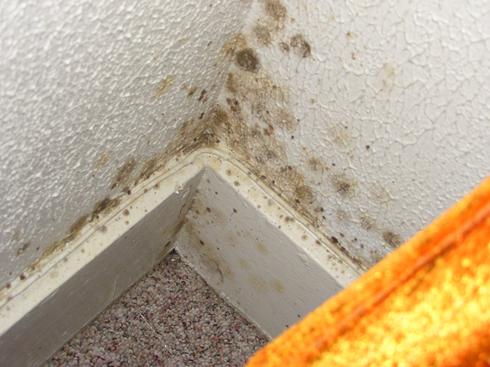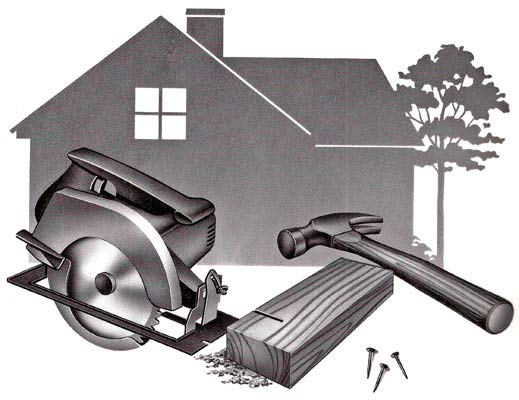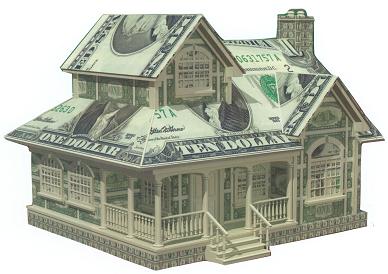
BLOG
Buying a Home? Make Sure Not to Waive These Contingencies
During a hot market, buyers are being advised to remove contingencies, but which ones?
Thanks to low inventory and high demand, competition for property has never been more fierce. And in response to the ultra-competitive market, some buyers are waiving their contingencies to make their offers more attractive to sellers.
But no matter how hot the market is, there are certain contingencies you should never waive. A recent article from realtor.com outlined the contingencies buyers should never waive during the home buying process (even in a seller’s market!), including:
Home inspection. The home inspection gives you key insights into the condition of the home and any necessary repairs or improvements that need to be made. The home inspection will also alert you to any red flags that the house isn’t what it appears (for example, issues with the foundation)—which is why you should never waive it.
Mold remediation. Mold can cause a host of health issues—and if your home inspection reveals that there’s a mold problem, you may want to ask the sellers to take care of it before you move in. Otherwise, you could find yourself dealing with the stress and expense of getting mold removed down the line—or, even worse, managing adverse health effects as a result of the mold issue.
Appraisal. If you have a mortgage, you should never waive the appraisal. Otherwise, if the home appraises for less than the purchase price you agreed to, your bank may only cover the amount the home is appraised at—and you could find yourself on the hook for the difference.
The Takeaway:
Bottom line? Waiving contingencies might make your offer more attractive to buyers, but it could translate to a disastrous home purchase—so make sure to keep your key contingencies in place.
Ready to start your home journey?
Should You Accept the Previous Buyer’s Inspection Report?
Sometimes a home falls out of contract. Most buyers assume that it is related to a bad home inspection, but there are many reasons for a home to come back on the market that are unrelated to the condition of the home.
Sometimes a home falls out of contract. Most buyers assume that it is related to a bad home inspection, but there are many reasons for a home to come back on the market that are unrelated to the condition of the home.
During the contingency period, most buyers can cancel for almost any reason – or even no reason. Of course, the listing agent and seller are motivated to get the home back under contract as quickly as possible and may offer the previous buyer’s home inspection report to the new buyer. Some may even ask that the new buyer remove their right to a home inspection, based on the one they offer. If you have been offered the previous buyer’s inspection report, you’re probably wondering if you should accept it and remove that contingency.
In a fast-moving seller’s market, it might be tempting, but before you accept the report, there are a few considerations:
• Before accepting the inspection, do your research. Who did the inspection? Is it a reputable, licensed home inspector? Check public review sites for comments and customer satisfaction. Check their license with the issuing board and see if they have had any violations or suspensions.
• Once you verify the company, give them a call. Make sure they have performed a comprehensive inspection. Many companies offer both a comprehensive and a simpler, cheaper, visual inspection.
• Finally, read the report carefully. If there are issues discovered, ask for clarification and consider paying for the inspector to meet you at the home to discuss the report in person with you.
Accepting the home inspection might seem like a good idea – both to make your offer more appealing to the seller and to save a few dollars – but before you remove the home inspection contingency, do your homework. Make sure you understand the real condition of the property before you buy it.
Buying or selling a home can be very stressful! Why not get educated now to be prepared. Sign up for your FREE homebuyer’s course today! bit.ly/housekey
FIVE THINGS TO KNOW ABOUT HOME INSPECTIONS
Inspections are a critical part of purchasing a home. Find out some of the things Inspectors are responsible for and what they are not responsible for.
Home inspection is an important part of the home sale process, both for buyers and sellers. When it’s time for you to hire an inspector, here are five things you should be thinking about:
1. It’s your choice: You are not bound or obligated to use any particular inspector. Your real estate professional may have some recommendations, but it’s ultimately up to you. Ask around and choose wisely—better to pay a little more now for a highly-respected inspector than to be surprised by a problem that the inspection didn’t reveal.
2. Looking for big problems: The inspector will be focused on the integrity of the home—safety, electrical work, foundation, load-bearing walls, etc. The inspector is not there to point out problems with ugly paint colors or light fixtures.
3. The report: There are hundreds of items to inspect in a home, so the inspector’s report will focus on the basics: What’s damaged, what needs repaired, etc. The report should be easy to read and understand.
4. Code of ethics: Though the inspector is working for the party that pays the inspector’s fee, the inspector will not deliver a report that intentionally hides or omits damaging information about the home. The report is private between you and the inspector, but if you’re the seller, you’re required to disclose any problems that the inspection reveals.
5. The inspector is not liable: Even the best inspectors can’t find every single problem in a home. They can’t see inside the walls or through the floors, so there could still be problems lurking. If a problem is revealed down the road, the inspector can’t be held responsible.
Let's begin your process, schedule a free consult with me today.
Schedule your consult here:
https://calendly.com/realtygoddess/30-min-homebuyer-consult
5 Home Inspection Red Flags
Inspection is always a good way to see the bones of your new home! Do not ever skimp on inspection! Laura Key 310.866.8422
A home inspection is a buyer’s opportunity to see if any problems lurk that may prove expensive to fix later. Home inspections nearly always uncover something in a home to watch for or minor repairs needed. But what repairs should buyers especially be alarmed about that could possibly send them back to the negotiation table? Tom Kraeutler of The Money Pit, a nationally syndicated radio show on home improvement, points out some of the following home inspection red flags:
- Termites and pests: The sooner termites are detected, and steps can be taken to get rid of them, the better.
- Drainage issues: A home that has poor drainage can have wood rot and wet basements and crawlspaces, which can then lead to major mold growth.
- Mold: Pervasive mold growth may indicate an issue with improper ventilation issues and can also cause health issues to those living in the home.
- Faulty foundations: A cracked or crumbling foundation could be a very expensive repair.
- Wiring issues: Outdated wiring or overloaded circuits can pose a fire hazard.
Source: DAILY REAL ESTATE NEWS | MONDAY, JULY 22, 2013
Call me today! Let's get you started on making your home dreams come true! Laura Key 310.866.8422
Budget for Closing Costs – Home Inspection and Title Fees
Buying a home means you also have to budget for additional expenses! Make sure you put some money aside for the extras.
Purchasing a home is a euphoric event. Once escrow begins, the euphoria can change to frustration, particularly if you are not ready for the closing costs that quickly accumulate.
Closing costs simply refer to the fees associated with various things associated with the escrow process in a real estate transaction. In the excitement of having an offer accepted for your dream home, you can easily lose track of the fact you are going to need to have some serious cash on hand to pay them. Many people make the mistake of only assuming they need the down payment money, and have to rush around town trying to come up with money for the closing fees.
If you are buying a home, you need to get a professional home inspection. Doing so can reveal potential problems with the home that you wouldn’t otherwise notice. Problems can include things such as rot, termites, water leaks and a bevy of other issues. The time to do this is during escrow. Of course, that means you are also going to have to pay for the inspection. Depending on the size of the property, home inspections can run a few hundred dollars up to a few thousand. Make sure you have money set aside for the fees.
Title insurance is something you absolutely must purchase when you buy any real property, a home, building, land or whatever. Title insurance protects both you and your lender. Title insurance is just what it sounds like. A title company will research the title of the home and essentially guarantee that the title is good. This means the seller actually owns the title and has the right to sell it to you. The title company will also make sure there aren’t any liens on the homes or other things that will cause you problems. Depending on the price of the home, title insurance can run you a couple of hundred dollars or up into the thousands. Again, it is important to find out the cost and budget for it.
Title insurance and a home inspection are two things you should absolutely have when purchasing a home. Just make sure you budget for them.
Laura Key, BRE 01908085 310.866.8422 Laura.A.Key@gmail.com www.KeyCaliforniaHomes.comA Bit About Mold
There are a number of little things to look out for when purchasing a new home. Normally the things to consider includes such things as location, wiring, the condition of the house itself, and several other factors. One of these factors that the home buying public is becoming more concerned with is mold.
 There are a number of little things to look out for when purchasing a new home. Normally the things to consider includes such things as location, wiring, the condition of the house itself, and several other factors. One of these factors that the home buying public is becoming more concerned with is mold. There are many different types of mold that can occur in a home and lead not only to structural damage, but some health concerns as well. Mold is difficult to find in many homes as it grows exclusively in dark and moist areas that are usually hidden somewhere in the structural areas of the home such as attics and basements. By the time mold shows up in the actual living areas, chances are that it is all through the home.
There are a number of little things to look out for when purchasing a new home. Normally the things to consider includes such things as location, wiring, the condition of the house itself, and several other factors. One of these factors that the home buying public is becoming more concerned with is mold. There are many different types of mold that can occur in a home and lead not only to structural damage, but some health concerns as well. Mold is difficult to find in many homes as it grows exclusively in dark and moist areas that are usually hidden somewhere in the structural areas of the home such as attics and basements. By the time mold shows up in the actual living areas, chances are that it is all through the home.
One of the most likely places for mold to form is anywhere that moisture is improperly vented. Another area of concern is if a home has ever flooded and was not completely or properly cleaned and dried after. Leaky plumbing and basement crawlspaces are other likely candidates. Mold can be a difficult thing to completely get rid of as the only thing it needs to continue growth is an organic material such as wood, and moisture. Both of these items are usually abundant in any home. The most likely was that moisture finds its way into the home is through faulty or leaky roofs and foundations. Both of these areas should be checked over by an experienced mold inspector on a fairly regular basis if there is any worry of mold beginning to grow, or if these has been mold in the past. Mold can be an expensive problem to deal with so be pro-active about looking for it, it can save you money in the long run.
Search for Homes Free! Click below!
What To Ask When Looking At Potential Homes
Buying a house can be an intimidating and overwhelming experience. Here are some key questions to ask yourself and sellers before plopping down a down payment. Let me help you with my FREE homebuyer's class! Call me today! Laura Key 310.866.8422
Buying a house can be an intimidating and overwhelming experience. Here are some key questions to ask yourself and sellers before plopping down a down payment.
What To Ask When Looking At Potential Homes
Following is a list of general questions you should always ask when considering making a real estate purchase. Keep in mind, however, you are unique.
You have particular dislikes and likes as well as factors in your life that are different than other people. The point I am trying to make is that you shouldn’t stick to just these questions. You are making an important choice, so give some thought to your situation.
1. Don’t rush into things. The first question to ask should be directed at yourself. What type of home do you want? How big should it be? What amenities do you want? Are you planning for a family in the next three to five years and will the home be able to accommodate a new bundle of joy? Make a definitive list and stick to it. If you stray from it, you could end up with a house that doesn’t really fit you and suffer buyer’s remorse.
2. The next question is what area do you want to live in? Pick a few. You may find the prices to be excessive or the selection not so hot, but make sure you exhaust those areas before moving on. Again, you want to avoid buyer’s remorse.
3. Once you start looking at homes, a key question to ask is how long the house has been on the market. The amount of time will give you an idea of how flexible the owner is on price. If the house has been on the market for a month, the owner isn’t going to be very flexible. If it has been on the market for six months, flexibility will definitely exist.
4. Has the house previously been in escrow, but fell out? If so, find out why? Was it a problem with the buyer getting financing or did the buyer find out there was something wrong with the home?
5. What kind of condition is the house in and how old is it? Remember that a seller has typically done everything reasonably possible to spruce up the home. If you can see wear and tear on the house, it may be a red flag. In such a situation, you need to get a home inspection to make sure there aren’t problems in areas you can’t see such as mold, rust and water leaks.
6. If you have children or are planning on it, you must investigate the school district. Are the schools good? Are there gangs or crime in the area?
7. In addition to the home price, you should ask whether there are any additional fees such association fees.
8. What are the property taxes and what will they be when you buy? Many people are shocked to find out how much they have to kick out in property taxes. Don’t get surprised.
9. Zoning and easement issues are often overlooked when buying a home. If you are buying in a neighborhood with many homes, zoning is undoubtedly going to be for residential living. Easements, however, can be nasty surprises. Find out if there are any easements on the property. An easement gives a third party the right to use of part of the property. This can include giving the neighbor the right to do something or a utility company to place structures on your prospective property.
10. Noise is another big issue to consider. If you are serious about the property, make sure to drive buy on weekdays and weekends. If the property shares a wall with another residence, such as a duplex or condo, make sure you view it while the neighbors are home to get an idea of how loud it is.
11. In the euphoria of buying a property, practical issues can be missed. A big one is traffic. Specifically, what is the commute like between the house and your place of work? You don’t want to buy the house only to find out it takes three hours to get to and from work each day.
Obviously, you should be asking many additional questions before making a purchase. These 11 questions, however, will help you get started. Call me to schedule a time to discuss the homebuying process in more detail. Don’t forget to look into fun things to do in the area to make sure it’s where you want to live!I care about my clients and educating them is a priority! Laura Key 310.866.8422 or email me at Laura.A.Key@gmail.com
A Bit About Mold
There are a number of little things to look out for when purchasing a new home. Normally the things to consider includes such things as location, wiring, the condition of the house itself, and several other factors. One of these factors that the home buying public is becoming more concerned with is mold. There are many different types of mold that can occur in a home and lead not only to structural damage, but some health concerns as well. Mold is difficult to find in many homes as it grows exclusively in dark and moist areas that are usually hidden somewhere in the structural areas of the home such as attics and basements. By the time mold shows up in the actual living areas, chances are that it is all through the home.
One of the most likely places for mold to form is anywhere that moisture is improperly vented. Another area of concern is if a home has ever flooded and was not completely or properly cleaned and dried after. Leaky plumbing and basement crawlspaces are other likely candidates. Mold can be a difficult thing to completely get rid of as the only thing it needs to continue growth is an organic material such as wood, and moisture. Both of these items are usually abundant in any home. The most likely was that moisture finds its way into the home is through faulty or leaky roofs and foundations. Both of these areas should be checked over by an experienced mold inspector on a fairly regular basis if there is any worry of mold beginning to grow, or if these has been mold in the past. Mold can be an expensive problem to deal with so be pro-active about looking for it, it can save you money in the long run.
Mold is one of the inspections you will have when purchasing a home. Finding a good inspector will be one of your top priorities when buying a home. Contact Laura Key today to learn more about the Steps to Buying! www.KeyCaliforniaHomes.com
Realty Goddess






